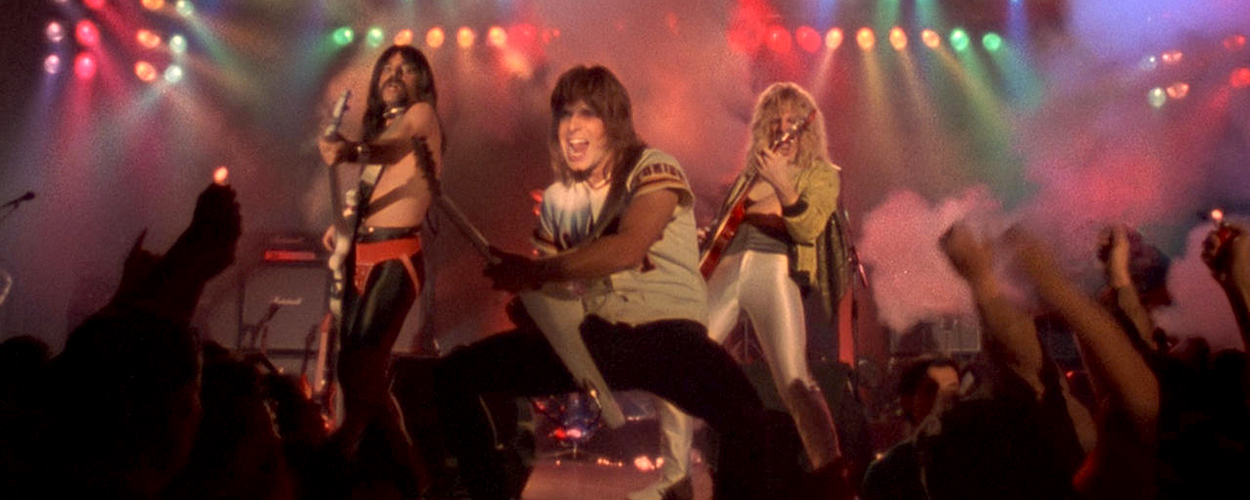This website uses cookies so that we can provide you with the best user experience possible. Cookie information is stored in your browser and performs functions such as recognising you when you return to our website and helping our team to understand which sections of the website you find most interesting and useful.
Artist News Business News Labels & Publishers Legal
Spinal Tap creators hit out at Vivendi’s “distracting and obfuscatory conduct”
By Chris Cooke | Published on Thursday 30 March 2017

The creators of ‘This Is Spinal Tap’ have responded to Vivendi’s response to their $400 million lawsuit, mainly focusing on the termination right element of the case.
Harry Shearer, Christopher Guest, Michael McKean and Rob Reiner all accuse Vivendi – which controls the ‘Spinal Tap’ movie via its StudioCanal business and the soundtrack via Universal Music – of misreporting financial information about the cult film and its spin offs in order to short-change the four creators who had a profit-share arrangement with the original producer.
Having gone legal on the matter, the four men say that Vivendi “wilfully manipulated certain accounting data, while ignoring contractually-obligated accounting and reporting processes, to deny [the] co-creators their rightful stake in the production’s profits”.
For its part, Vivendi called the litigation “absurd”, insisting that the movie’s financial performance had always been modest, and accusing the four creators of not going through the correct formalities before filing their lawsuit.
In its response, Vivendi also noted Shearer’s bid to reclaim the rights in all things ‘Spinal Tap’ in the US by exercising the termination right in American copyright law, which allows creators who assign their rights to third parties to reclaim them after 35 years. Vivendi is opposed to those efforts – and is threatening to go legal over the termination claim – on the basis that the various ‘Spinal Tap’ outputs were produced on a ‘work for hire’ basis.
This is one of the big get-outs for corporate rights owners in America keen to stop performers and creators from reclaiming the rights in their 35 year old work. The termination right does not apply to so called work for hire contracts, though that has led to much debate over what kinds of contracts in the entertainment industry actually constitute work for hire arrangements. Not the ‘Spinal Tap’ deals, reckon the movie’s creators.
Having filed a response with the court overseeing the case yesterday, Shearer told reporters this morning: “Vivendi’s distracting and obfuscatory conduct is entirely in line with our experience of the corporation to date – failing to provide participation statements; declaring piddling revenue share from exploitation over 33 years, particularly ‘Tap’ music and merchandise; and neglecting or abandoning the protection of ‘Tap’ trademarks worldwide. As a result, we have seen a deluge of unofficial Spinal Tap-branded apparel, dishware, pet accessories, and god knows what else. And perhaps the greatest irony? Learning that the only party against whom Vivendi threatens to enforce copyrights, is me!”
He went on: “That Vivendi suddenly appears concerned about certain exploitation opportunities would be laughable if it were not so disingenuous. The hypocrisy on display is unreal. On the one hand, Vivendi claims ‘Spinal Tap’ and all its associated collateral have hardly made the thinnest of dimes. On the other, they hold the rights with the ferocity of a death grip, all the while refusing to enforce them, excepting the recent threat targeting me. Seemingly Vivendi is prepared to allow anyone but the creators to enjoy enrichment from these works”.
The other three ‘Spinal Tap’ creators, who followed Shearer’s lead in suing Vivendi, have also followed suit in filing termination notices under US copyright law. Giving his take on this specific issue, Guest added: “It’s absurd that Vivendi now claims our creations were ‘works for hire’ and that Harry’s termination – notwithstanding we have all given notices – places a ‘cloud over the movie and music copyrights’ which ‘threatens Studio Canal’s ability to distribute ‘Spinal Tap’ and to otherwise enjoy its lawful rights to the movie'”.
He added: “Vivendi is re-writing history and showing a complete lack of understanding of copyright law. The band, the characters, the distinctive logo and most of the songs performed both live and televised all existed long before any agreement to produce a motion picture”.





